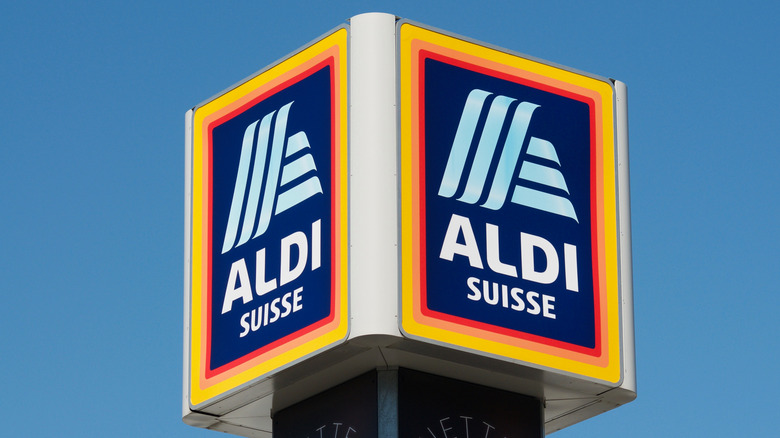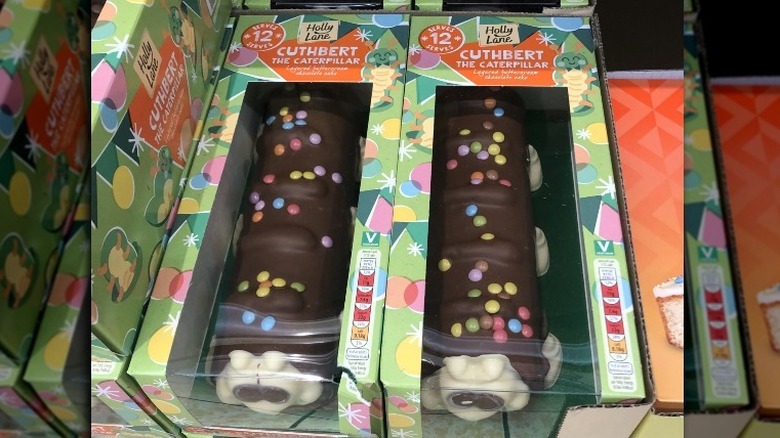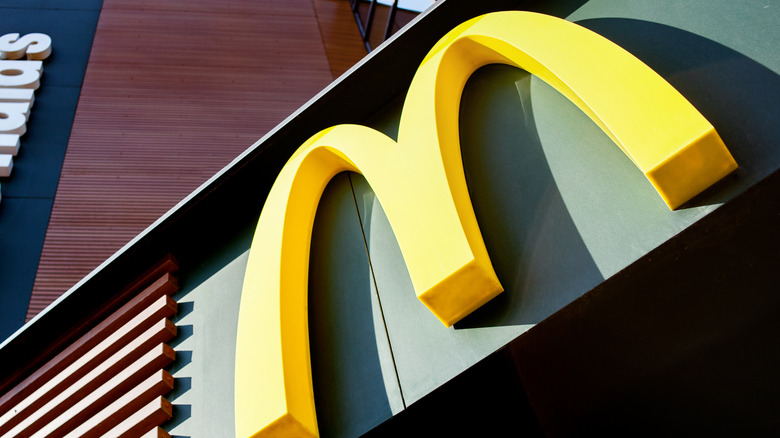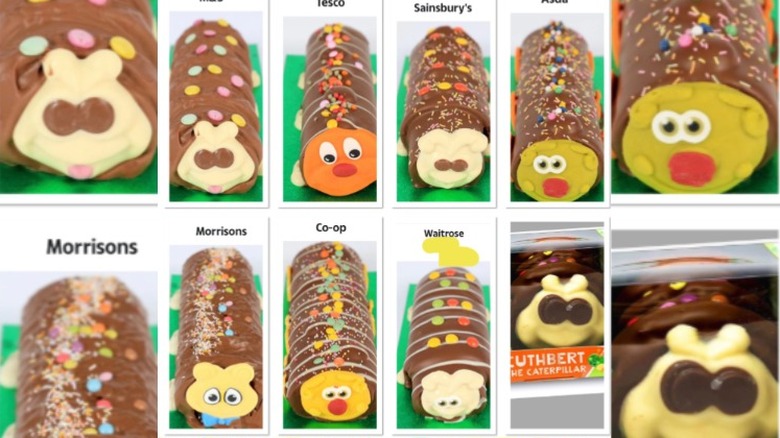The Adorable Cake Aldi Is Being Sued Over By Marks & Spencer
At first glance, an adorable caterpillar cake by Aldi should make people smile. Unfortunately, Marks & Spencer are not having a warm reaction to the sweet treat. In a recent trademark claim filed in the U.K., the BBC reports that Marks & Spencer asserts that Aldi's "Cuthbert the Caterpillar cake infringes its Colin the Caterpillar trademark." This infringement complaint looks to prohibit Aldi from currently selling and future sales of a cake that "rides on the coattails" of the brand's well-known caterpillar character. A Marks & Spencer spokesperson said, "We want to protect Colin, Connie and our reputation for freshness, quality, innovation and value."
According to Eater, other brands have sold caterpillar themed cakes, but Aldi is the only brand that has been sued. In addition, the Daily Mail reports that the Cuthbert the Caterpillar dessert was spotted in 2019. It provided a quote from a previous Marks & Spencer tweet saying, "'Hmm, my spidey senses are tingling... we definitely spot an impostor.'" It is unclear why the lawsuit is being filed now, nor is it clear why only Aldi is being sued for its caterpillar cake.
Why do food companies sue for trademark infringement?
Trademark infringement can be a concern for a food company. As discussed in a Food Dive article, when a company feels that another brand might cause "irreparable damage," the lawyers are ready to take to the courthouse steps. From petty disputes to larger concerns, several well-known brands have sought reparations for trademark infringement. According to the United States Patent and Trademark Office, this type of legal dispute partly arises from a "manner that is likely to cause confusion" about a good or service.
While the legal application might need an attorney's explanation, there is an element of common sense that is applied. As shared by Lawyer Monthly, three well-known cases included disputes over Kit Kat bars and its shape, a particular taste of a cheese spread, and even the name of a sports related pie. Each lawsuit sought to eliminate consumer confusion about particular products. While Eater once did a deep dive on these "badges of origin," the reality is that a brand name is more than just a bunch of words, and companies want to protect that public perception of their brand. Although some people might think that imitation is a form of flattery, that concept does not apply in trademark law.
A name matters and confused consumers are left baffled
Although people can debate the phrase, "what's in a name," for companies its branding matters. For example, a person might not drive to McDonald's and try to order a Burger King Whopper because these fast food restaurants are different and the name conveys that idea. But, what if the names were more similar? If anyone remembers the classic film, Coming to America, the debate of the McDonald's versus McDowell's, might come to mind (via NJ.com). Although this example is from a movie, it can happen in real life. A confused customer is not good for any business.
Fortune discussed trademark litigation and the potential for customer confusion. While certain words like "grocery store" may be a general phrase, other terms can be associated with specific brands. Telly Wong of IW Group marketing agency explained to the outlet that companies need a recognizable name that can be associated with their brand only. How many times have you glanced at a name or a logo, misread it or thought that you saw something else? It is this customer confusion that companies want to avoid.
Colin, Cuthbert, not all caterpillars are created equal
When Marks & Spencer launched this new food fight against Aldi, the company wanted to avoid the caterpillar confusion. As stated by The Guardian, "With their hard chocolate shells decorated with sweeties and white chocolate grinning faces, it is difficult to tell Colin and Cuthbert apart – until you have had a bite, anyway." From the name to the packaging, the similarities between the two products might not pass the look test. Granted Aldi has a lower price, but does that value come at a bigger cost because the taste is inferior?
Some consumers are feeling that this battle between brands, might be more suited for the playground. As seen in Hello!, various people are finding this situation a little childish. Although Aldi had previously declined to comment publicly, the brand took to its Twitter account to say, "This is not just any court case, this is... #FreeCuthbert" and the commentary has continued. Another Twitter account, @PrimaryCoHead, created a collage of all the caterpillar cakes from various brands, which adds to the question why is Aldi being singled out? Whether or not consumers can spot the difference, care to spot the difference, or just don't care at all remains to be seen. It appears that with this caterpillar cake dispute, no one is going to be transforming into a beautiful butterfly.



